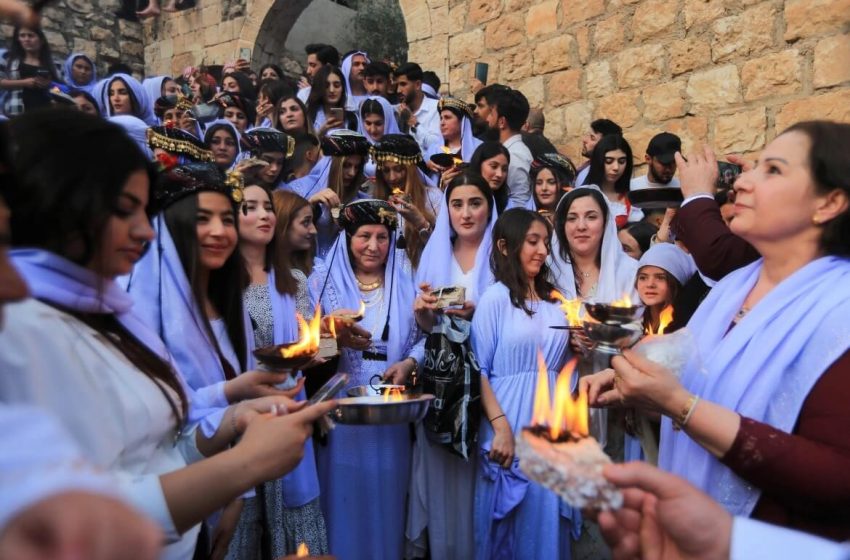Yezidis celebrate their New Year

Yazidis wearing their best clothes to celebrate their New Year. Photo: Reuters
Baghdad (IraqiNews.com) – The Yazidis are celebrating the Yazidi New Year on Wednesday, which they call the ‘Red Wednesday.’
The Red Wednesday is the first Wednesday of April according to the eastern calendar (Kurmanji), which is 13 days behind the Gregorian calendar and falls in the spring season in which flowers and roses of all colors and shapes grow and spread.
Special rituals take place on this day, where Yazidis get up early, wear their most beautiful clothes, decorate the entrances of their homes with flowers and anemones, and young men and women paint 12 boiled eggs.
Every three eggs are painted with the color of a season of the year, and then the eggs are placed in a dish in the center of the house, and the egg symbolizes the sphericity of the earth.
Boiling eggs symbolizes the freezing of the earth. After eggs are boiled, the shell of the egg symbolizes the melting snow on the earth.
As for the coloring of the eggs, it is a reference to the colors of roses and flowers that bloomed with the arrival of the ‘peacock king,’ that is, spring, and spring is the beginning of life, according to their belief.
As part of the celebrations, men and women squeeze olives in the Lalish Temple, east of Duhok in Iraqi Kurdistan.
The temple is the destination of the Yazidis, who light 365 lamps, according to the number of days of the year, using pure olive oil, to commemorate what they believe is the anniversary of the arrival of light to the world.
The Yezidis sanctify fire because they love light and stay away from darkness, so they light lanterns on their feast day to spread the light, and they say that they have been subjected over time to accusations that they are worshipers of fire because of their traditions.
Historians believe that Yazidis are inspired by several ancient sources, including the ancient Babylonian and Assyrian religions and the traditions of worshiping the sun god in the ancient eastern civilizations.
